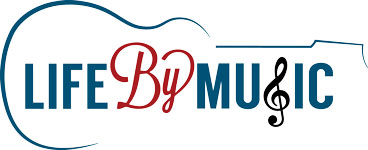Introduction: The Power and Impact of Music Education
Music education isn’t just about learning songs and notes; it’s a powerful tool for shaping young minds and fostering holistic development. Research shows that schools with robust music programs have higher graduation rates and improved academic performance across subjects. Let’s see the top reasons why investing in music education is essential.
The Importance of Music Education in early childhood
Overall Music Education Statistics
- According to the NAMM Foundation, schools with music programs boast a 90.2% graduation rate and 93.9% attendance rate, significantly higher than schools without music education, which average 72.9% and 84.9%, respectively (NAMM Foundation, accessed January 2024).
- Students in high-quality music programs score better on standardized tests, regardless of socioeconomic status (Nature Neuroscience, April 2007).
- Musically-trained children demonstrate stronger everyday listening skills, which are crucial for academic success (Hearing Research, 2013).
- Contrary to common belief, providing music education is not prohibitively expensive. The study found that the average per-student spending for music programs was $251, which is less than two percent of the average total per-student operating expenditure of $13,214. Music expenditures per student enrolled in music classes averaged $368 (National Association for Music Education, 2015).
3 Mental Benefits of Music Education for At-Risk Youth
- Cognitive Enhancement: Studies indicate that music training enhances cognitive abilities such as memory, attention, and executive functions (source: Frontiers in Psychology, 2020).
- Academic Performance: Students engaged in music education tend to perform better academically, demonstrating improved reading and mathematical skills (source: Journal of Educational Psychology, 2019).
- Social Skills: Music participation fosters teamwork, discipline, and social cohesion among at-risk youth (source: American Psychological Association, 2013).
Additionally, researchers have found that after two years, children who not only regularly attended music classes but also actively participated showed larger improvements in how the brain processes speech and reading scores than their less-involved peers (Kraus, Northwestern’s Auditory Neuroscience Laboratory, quoted in Time, December 16, 2014).
3 Physical Benefits of Music Education for At-Risk Youth
- Motor Skills: Learning to play musical instruments improves fine motor skills and coordination, crucial for overall physical development (source: National Library of Medicine, 2019).
- Physical Fitness: Participating in music activities such as dance or movement exercises promotes physical fitness and active lifestyles among youth (Journal of Physical Activity and Health, 2012).
- Neural Processing: Individuals who took music lessons as children show stronger neural processing of sound. Young adults and even older adults who have not played an instrument for up to 50 years show enhanced neural processing compared to their peers (Northwestern University, 2017).
3 Emotional Benefits of Music Education for At-Risk Youth
- Emotional Regulation: Music education can significantly help in managing emotions and reducing stress levels. Engaging in music activities can lower cortisol levels, a marker of stress, thereby providing a calming effect and helping individuals to better manage their emotions (source: British Journal of Psychiatry, 2014).
- Self-Expression and Confidence: According to a study published in the “Journal of Research in Music Education” in 2015, participation in music programs helps youth to articulate their feelings and experiences through a creative medium. This process not only enhances their ability to communicate emotions but also fosters a positive self-image and self-esteem, as they receive validation and recognition for their musical contributions (Journal of Research in Music Education, 2015).
- Behavioral Improvement: Music engagement correlates with reduced behavioral problems and improved social behaviors among at-risk youth (source: Journal of Youth and Adolescence, 2019).
Moreover, individuals who took music lessons as children show stronger neural processing of sound. Young adults and even older adults who have not played an instrument for up to 50 years show enhanced neural processing compared to their peers (Northwestern University, 2017).
Music and Arts Education in Clark County, Nevada
Clark County faces significant challenges in education and community development:
- Education Funding: Clark County ranks low in per-pupil spending and academic performance metrics compared to national averages (Census Bureau, 2021).
- Impact of Budget Cuts: Arts and music programs often bear the brunt of budget cuts, despite their proven benefits for student engagement and success.
Conclusion: Investing in Our Future Through Music Education
Implementing music education in schools is more than just supporting the arts–it’s about nurturing creativity, improving academic outcomes, and fostering a sense of community. It offers incredible benefits that extend far beyond the classroom. By prioritizing music and arts education, especially in at-risk communities like Clark County, Nevada, we can make a significant difference in the lives of individuals and create a ripple effect of positive change that impacts future generations.
Hi, we are Life By Music!
A 501c3 non-profit organization committed to creating positive change through customized music education programs, instrument donations and music scholarships for kids, teens and veterans.
We believe in the transformative power of music to help make this world a better place. So we work with at-risk schools, foster homes, after-care programs and veterans’ groups, to foster supportive and enriching environments that instill life skills that enhance mental, physical and emotional health.
Help us build a future where music is a beacon of hope, and music resources are readily available, for at-risk youth and veterans. Together we can make a difference… One Note at a Time..
